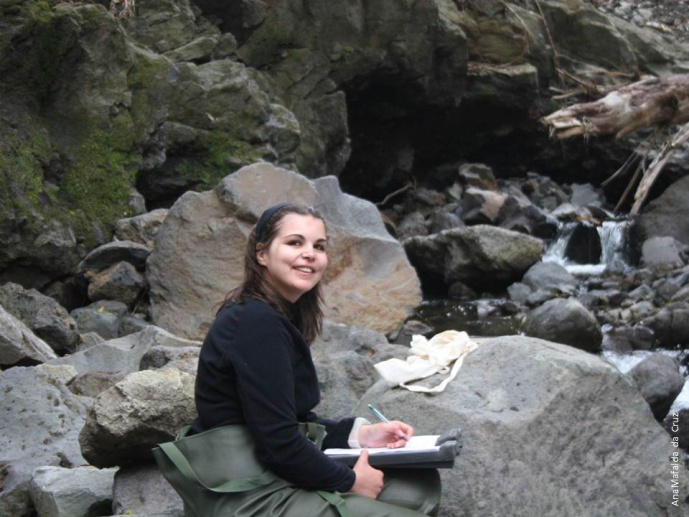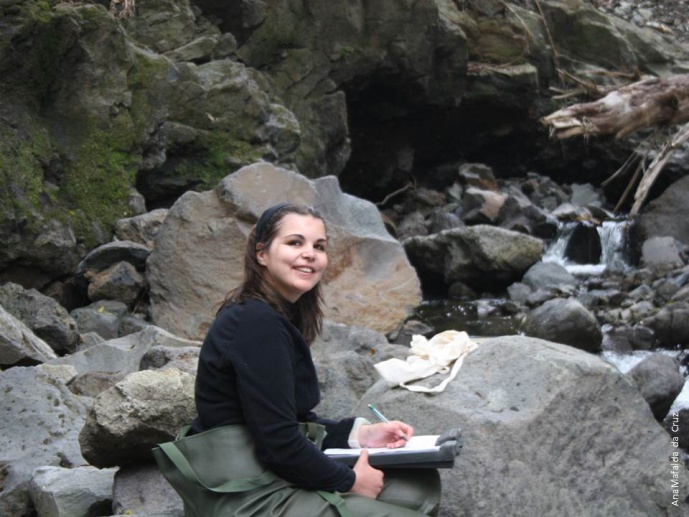Ana Mafalda Gomes Vieira da Cruz
Research Assistant
Academic background:
2012 – Master student in Insular Biodiversity and Ecology, University of the Azores (Portugal)
2008 – Degree in Biology - Environmental and Evolution, University of the Azores (Portugal)
Research interests:
My main research interests concern the biodiversity, biology and ecology of freshwater invertebrates. I’m particularly interested in knowing the biodiversity of Azorean zooplankton lakes and understanding their ecology and their distribution patterns. Other area of research interest includes the ecological monitoring of Inland Water Bodies.
PROSTREAM - Ecological experimentation in island ecosystems: vegetal litter processing in streams
The processing of terrestrial derived litter is a fundamental ecosystem process in woodland streams. The conversion of dead organic matter into secondary production is mediated by the activities of aquatic microbes (primarily hyphomycetes and bacteria) and invertebrates (primarily detritivores). Therefore, changes to the communities of these organisms may affect ecosystem functioning. In the absence or low abundances of detritivores in streams, what will the fate of the terrestrially derived litter be?
We selected 3 streams with and 3 streams without detritivores in S. Miguel island (Azores) and used the litter bags approach to address the question above. Leaf litter species from the surrounding vegetation, selected according with their chemical and physical characteristics, were incubated in both stream types in coarse and fine mesh bags, which allow or prevent macroinvertebrate access to the litter, respectively. This design will allow us to assess the effect of the presence of detritivores on litter processing, assess if other invertebrates intervene on litter processing in the absence of detritivores, and assess the role of microbes on litter processing.

